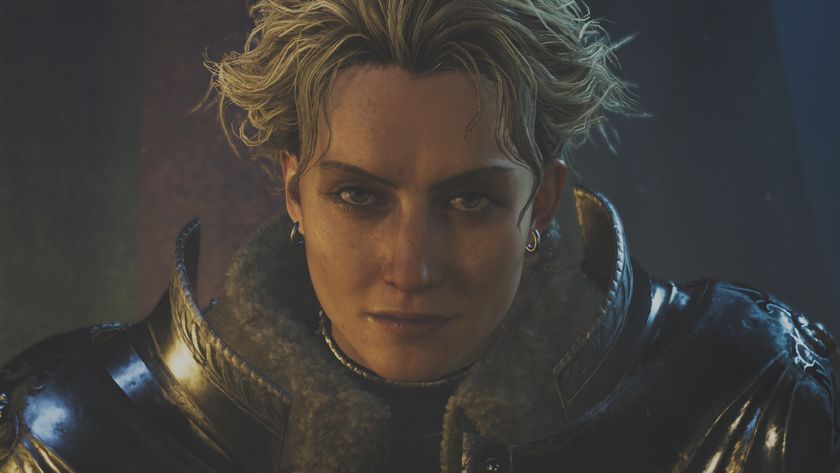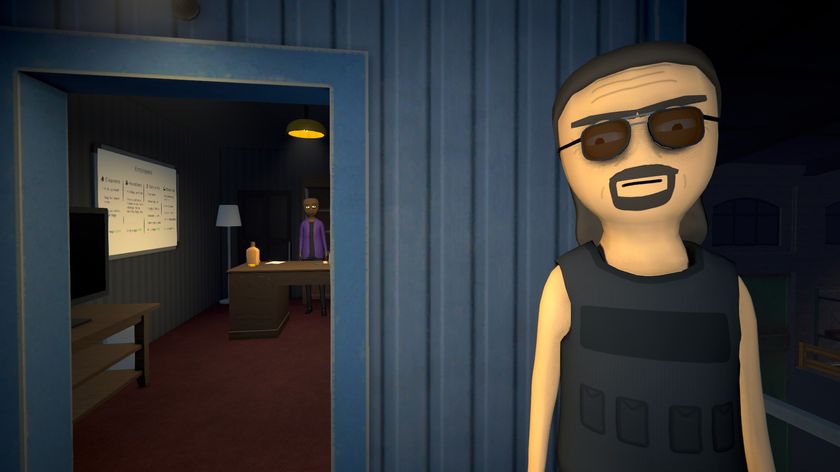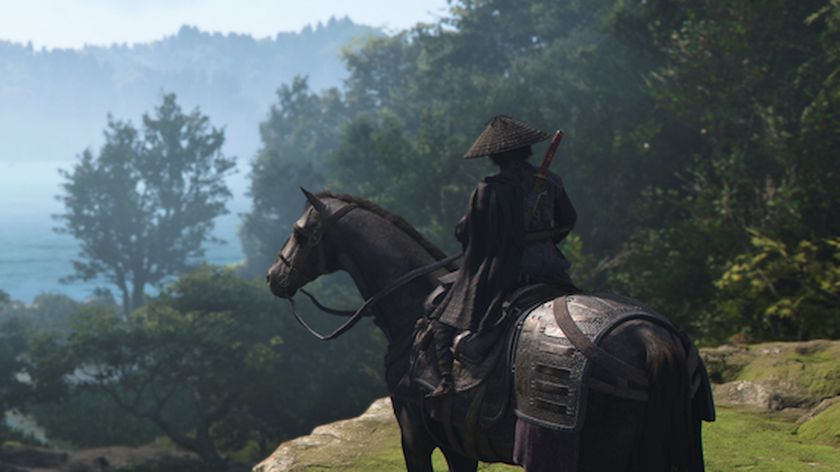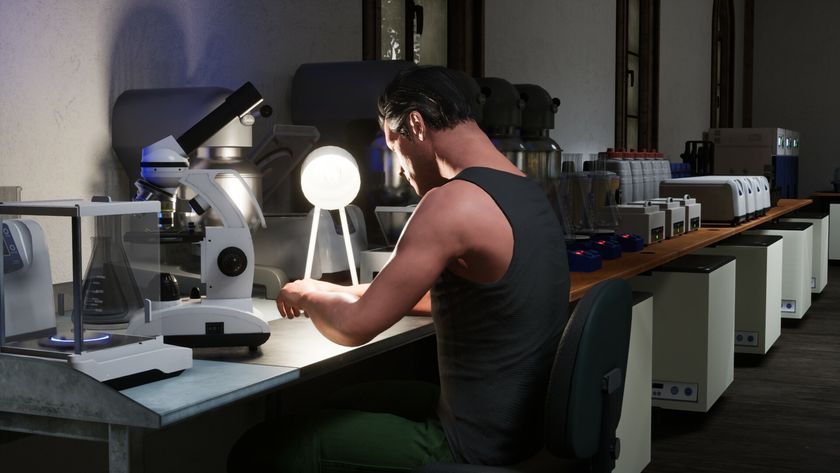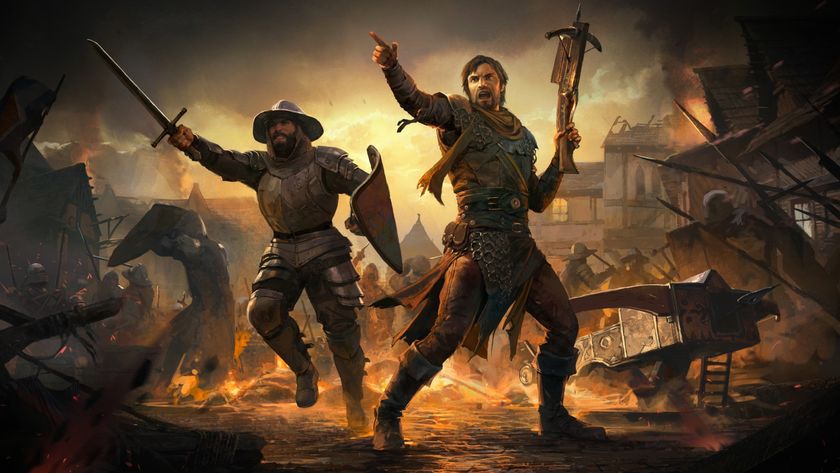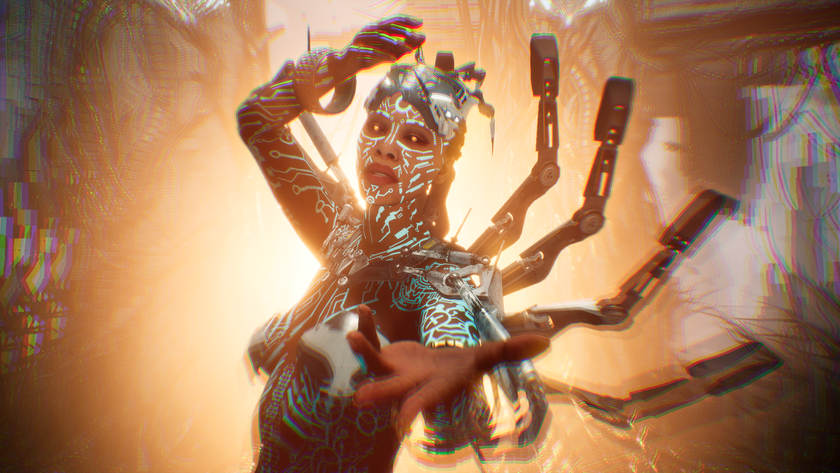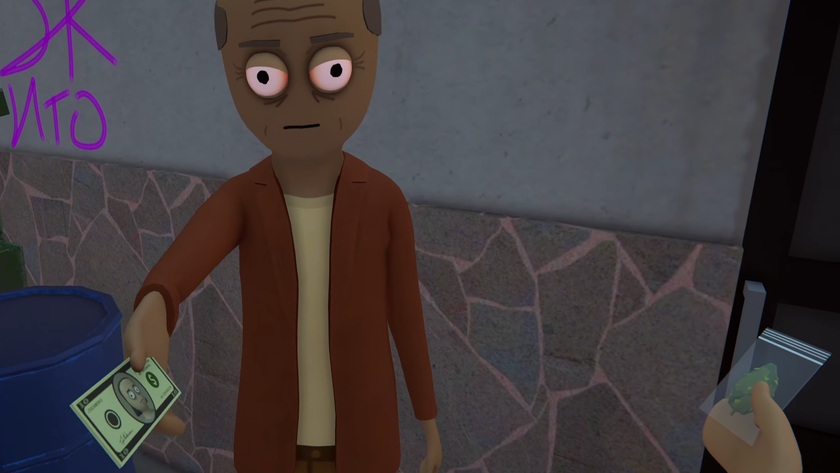GDC 2013: Valve's Michael Abrash on the challenges of VR - "a new world is emerging"
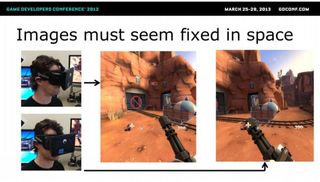
Valve's wearable computing wizard, Michael Abrash, hosted a lecture at GDC about the challenges of virtual reality, and where the tech might be headed in the future. He's now posted a transcript of the talk on his Valve Time blog. Abrash's musings will be familiar to anyone who follows the incredibly detailed analyses he posts. The talk is a sort of amalgamated greatest hits - presumably the crowd were on their feet cheering when he blasted out the first few bars of Latency.
It's an interesting look at problems faced by VR, especially as it coincided with the shipping of dev kits for the Oculus Rift, a device Abrash says has "huge potential," despite seeing "lots of room for improvement in all areas."
For instance, tracking: how the device reacts to the movement of your head and adjusts the image in kind. Abrash noted the Rift's inexpensive and lightweight gyroscope and accelerometer were positives, but said that, "it also drifts because there's no absolute positioning, and it doesn't support translation – that is, it doesn't provide accurate reporting of head movement from side to side, up and down, and forward and back, and that's a significant lack."
It's here you realise that the crux of Abrash's argument isn't about issues with the Rift's design and implementation, but a desire to see the scope of all VR tech reach its maximum potential. As he says, "IMU tracking works for games that don't require anything but head rotation – FPSes, for example. But even in FPSes, the lack of translation means you can't peek around corners or duck down."
Abrash goes on to talk about latency, suggesting that, for VR to truly shine, the total latency between tracking and getting the photons to stop firing into your face needs to be between 1 & 20 milliseconds. (For comparison, the Rift can reportedly handle a latency of 30-40ms under optimised conditions.)
He also covers how VR can clash with our perception of reality in an in-depth segment that I won't even attempt to summarise in a few pithy paragraphs. Well, except for maybe this great quote: "The key here is that the way displays present photons to the eyes is nothing like the real world, and it's a miracle we can see anything coherent in displayed images at all." Suffice to say, if you're interested in the workings of VR and eyeballs, you should check out the full thing .
Despite the issues raised in this talk, it's clear that Abrash is anything but defeatist about the possibilities of VR. "I've just spent 25 minutes telling you how hard VR is – and that's certainly true. But realtime 3D was equally hard ... and over time all that has worked out amazingly well."
The biggest gaming news, reviews and hardware deals
Keep up to date with the most important stories and the best deals, as picked by the PC Gamer team.
"It really is like when I was working on Quake - a new world is emerging."

Phil has been writing for PC Gamer for nearly a decade, starting out as a freelance writer covering everything from free games to MMOs. He eventually joined full-time as a news writer, before moving to the magazine to review immersive sims, RPGs and Hitman games. Now he leads PC Gamer's UK team, but still sometimes finds the time to write about his ongoing obsessions with Destiny 2, GTA Online and Apex Legends. When he's not levelling up battle passes, he's checking out the latest tactics game or dipping back into Guild Wars 2. He's largely responsible for the whole Tub Geralt thing, but still isn't sorry.
